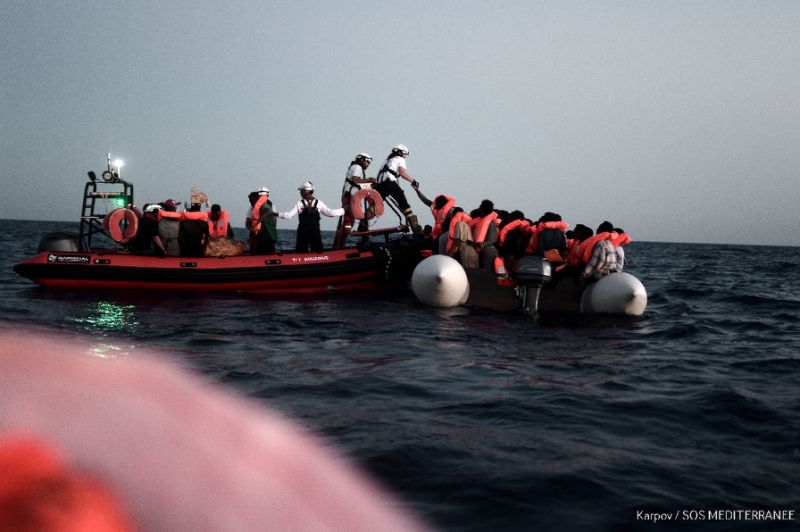Italian far-right leader Matteo Salvini is to stand trial on charges of illegally detaining migrants at sea after senators voted Wednesday to strip him of his parliamentary immunity.
A court in Sicily recommended that former interior minister Salvini stand trial for blocking migrants from disembarking from a coast guard boat last July.
But ministers cannot be tried for actions taken while in office unless their parliamentary immunity is revoked.
The Senate’s decision sends the chief of the anti-immigrant League party to trial for abuse of power and illegal detention, charges for which he faces up to 15 years in jail.
“I have defended Italy. I have full and total faith in the justice system,” Salvini told ANSA news agency after the vote.
“I am not worried at all, and I’m proud of what I’ve done,” he said, adding he would “do it again when I get back into power.”
Salvini had refused to allow 116 rescued migrants to leave the Gregoretti coast guard boat – where they had been languishing for about a week in insalubrious conditions – until a deal was reached with other European states to host them.
A Catania court accused him of “abuse of power” in blocking them on board from July 27 to July 31 last year, and of illegally detaining them.
Salvini insists the decision had the backing of the government and Prime Minister Giuseppe Conte.
‘Head Held High’
Before the debate began, Salvini took to Facebook to say he had his “head held high, with the calm conscience of those who have defended their land and people.”
“If a man is not ready to fight for his ideas, either his ideas are worthless, or he is,” Salvini wrote, quoting Ezra Pound, a 20th-century American poet known for his fascist sympathies.
The Gregoretti on July 25 took on board 140 migrants who were trying to make the perilous crossing from war-torn Libya to Europe – the same day 110 migrants drowned off the Libyan coast.
Some migrants in need of urgent medical care were taken from the coastguard vessel but 116 of them remained on board for almost a week.
The then-interior minister’s “closed ports” policy, aimed at stopping migrant arrivals from Libya, saw his popularity numbers shoot up.
Italy has long complained that its European partners have abandoned it to deal alone with migrant arrivals.
Under Italy’s constitution, parliament can block legal proceedings if lawmakers feel the minister was performing his job and in the national interest.
The interior minister can limit or forbid entry into or transit through Italy’s waters on public security grounds – except in cases involving military vessels or ships in non-commercial governmental services like coast guard boats.
Salvini’s League party joined a coalition government as the Five Star Movement’s junior partner in 2018 but gained popularity largely thanks to his tough anti-immigrant stance.
Conte, who has remained prime minister while Salvini provoked his own ousting from government in August last year, says he was not the one to decide whether the migrants should be allowed into port.
“The minister (Salvini) had a new decree approved which strengthened his powers,” Conte said in January. “He claimed the right to decide if and when to disembark the people aboard the Gregoretti.”
Second Trial?
Salvini managed to avoid trial in a similar episode, in which he prevented 177 rescued migrants aboard the coast guard vessel Diciotti from disembarking for several days in August 2018.
Then, the League-M5S government agreed it was a joint decision and the Senate subsequently blocked Salvini from facing trial.
Salvini, whose party recently lost a key regional election in Emilia Romagna, faces yet another hurdle on February 27.
A Senate committee is to decide on lifting his immunity for forcing the charity rescue vessel Open Arms to remain at sea for days off the coast of Lampedusa in August last year.
Given the slow pace of the Italian justice system, Salvini faces no immediate risk.
However, if he is eventually convicted he would be barred from politics for six to eight years.
More on the Subject
Italy’s Far-Right Salvini Out of Power Following New Coalition Deal






















